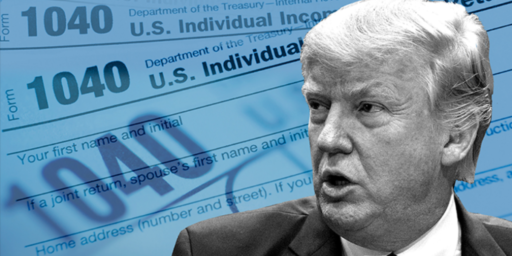Efficient Market Hypothesis
Jeremy Siegel of the Wharton School looks at the claims that the Efficient Market Hypothesis (EMH) is the cause of the current crisis and rejects these claims. The main part of his argument is,
But is the Efficient Market Hypothesis (EMH) really responsible for the current crisis? The answer is no. The EMH, originally put forth by Eugene Fama of the University of Chicago in the 1960s, states that the prices of securities reflect all known information that impacts their value. The hypothesis does not claim that the market price is always right. On the contrary, it implies that the prices in the market are mostly wrong, but at any given moment it is not at all easy to say whether they are too high or too low.
Now, a naïve reading of this might be that markets incorporate all information that has an impact on the price of a security. This is an inaccurate reading. Consider the weak form of the EMH,
In weak-form efficiency, future prices cannot be predicted by analyzing price from the past. Excess returns can not be earned in the long run by using investment strategies based on historical share prices or other historical data. Technical analysis techniques will not be able to consistently produce excess returns, though some forms of fundamental analysis may still provide excess returns. Share prices exhibit no serial dependencies, meaning that there are no “patterns” to asset prices. This implies that future price movements are determined entirely by information not contained in the price series.–emphasis added
Note that last part. Price movements are determined by information not contained in the price series. If the failure of rating agencies to accurately reflect the actual risk of a security is not in the historical information, then it cannot be anticipated by market participants and will move asset prices in an unpredictable way, which is why the above definition of the EMH continues with, “Hence, prices must follow a random walk.”
Even a bubble, while anomalous, is permissible under the weak form of the EMH as a rare statistical event. So the mere fact that there is a bubble does not render the hypothesis moot either. Still, as Prof. Siegel notes, this does not absolve the various CEOs, regulators and politicians of responsibility. To use Donald Rumsfeld’s categorization, there are known knowns, known unknowns and unknown unknowns. It is the latter two categories that can lead you to ruin, especially if you pretend that the first category is sufficient to allow you to earn excess profits.






I read almost all of Justin Fox’s Myth of the Rational Market, skimming the last couple chapters.
I think the EMH criticism is more right than wrong because (1) “weak” form EMH predates the coining of the EMH (2) “stronger” forms of EMH did lead to the confusion between volatility and risk embodied in the VaR (value at risk) equations.
Long before the EMH was coined, people knew that stocks moved in a random walk, and that stock picking and timing could not beat random methods.
Somewhere around 1920 someone dealt our cards with stock names and matched the performance of stock advisers.
The tautology that “stocks are unpredictable” because “weak-form EHM says they are unpredictable” is not really useful … it just tells us something we already knew.
(I understand that they still taught EMH at your school, but EMH is dead.)
But what if you aren’t interested in earning excess profits but rather in declaring profits in excess by fiat so you can confiscate them and condemn the profiteers in a Two Minutes Hate?
But seriously, having the information available isn’t nearly the same thing as using it well or interpreting it correctly without the benefit of hindsight. Personally, I prefer to defend free markets on the basis of morality raterh than efficiency, even though they are more efficient.
OT – drew, if you’re listening, I have some high end audio questions. How do I get in contact with you?
Neither of these are valid criticisms of the EMH. Formalizing something that has long been suspected does not render it moot (objection number 1). Even if the strong form does lead to confusion, that is not a problem with the hypothesis, but a problem with those who think they understand the hypothesis (objection 2).
Funny, I think the results of behavioral economics will find that the basic argument for the EMH is right. Maybe the current argument for it is wrong, but that the conclusion is right, because as you say, the “stocks move in a random walk”–that is really the final take away point of the EMH.
Consider this parable:
Jim: Stock prices are unpredictable.
Bob: I can explain that, there are little daemons who move prices all day, to the frustration of priests and investors.
Jim: How do you prove that?
Bob: You said yourself, the prices are unpredictable!
(In another day the “little daemons” story would have resonance with beliefs, but beyond that be unprovable. Update it with “informational efficiency” and we are in the same spot. Note that “tautology and EMH” yields a lotta hits in google scholar.)
Note, in this abstract, “the EMH hence can be deciphered either way: the traditional none-refutable way or ..”
The real world is not a defined information space.
I’m curious, Steve, what effect do you think flash trading has a stock’s value. What epistemological effects result from stuff like this:
The EMH may or may not be dead, but with the advent of nanosecond trades, I’d think it’s what we don’t (and perhaps cannot) know that has a more substantial effect on a stock’s price than what we do you know.
What do you think?
BTW, “Even if the strong form does lead to confusion, that is not a problem with the hypothesis, but a problem with those who think they understand the hypothesis (objection 2).”
Disproofs of stronger forms are wall to wall. I won’t bore you. The only thing still standing is actually the weak form, which isn’t much of a hypothesis by itself.
So actually, people misapplied a dead theory.
This is a bit hard for me. I’m conflicted.
I’m a Chicago grad, although I didn’t take Gene Fama’s class. And the random walk is indisputable (as are futures prices) and I DID take Ken French’s course.
I think Siegel hit the nail on the head. The issue isn’t that the price is “right,” just that the price is reflective of information.
Here’s the conflict. Let’s just say I have been “affiliated” with a major momentum investor here. And despite the fact that momentum investing is almost by definition inconsistent with EMH, if you spoke with Mr Momentum he would focus more on being smarter than the average bear, not esoteric EMH concepts.
Charles –
If James is OK, right here through OTB. Otherwise, we will figger something out.
BTW – I have made some wonderful back buys for Pomerol. Awesome.
Steve
I know you already answered this in the affirmative:
I wasn’t as clear as I should have been. What I was getting at was, I think, captured in a passage in the wiki page on the EMH:
But isn’t that just what the flash traders are doing? I’ve got percolating around in my head that these kinds of ultrafast trades introduce a kind of quantum uncertainty into the market. I’m thinking of the observer effect here: The near-simultaneous issuing and canceling (and then skedaddling) changes the stock phenomena for those not privy to the fast trade. And the fast traders then profit on this uncertainty (inefficiency). Does this make any sense?
If it’s true, Galleon overpaid (hundreds of millions?)
This flash trading stuff is BS, no doubt. No defender of free markets could possibly defend that.
I don’t know how all the computer algorithms work on Wall Street, but my opinion is that it would be trivial to design one where all market participants were treated fairly.
“Even a bubble, while anomalous, is permissible under the weak form of the EMH as a rare statistical event.”
Permissible? Well, that is good because they do happen. hey happen pretty often, right before most recessions it seems. EMH, IMHO, has no good explanation still for this. Sticky prices and wages need to be appended into the theory. I think that the behavioral economists are going to tell us that EMH is the perfect theory for Vulcans. It works well for when the market and the economy is in a stable period or for small markets. In large markets subject to turmoil and political anxieties, not so much. Also, the central bank and Congress do things which distort asset prices not based on real valuation.
http://interfluidity.powerblogs.com/posts/1256656346.shtml
Steve
Yes.
My God! Anything that is random means we can’t tell its random. So the notion of random is circular and self-defeating. But wait, Odograph has argued that stocks price movements are random. Oh nooeesss……
Not necessarily inconsistent with the EMH. Just because on average the market can’t be beat doesn’t mean that some people can’t beat…for awhile at least. Think of Vegas. Yes, in a large number of trials it is impossible to win in Vegas. But Odograph could go to…oh wait, he doesn’t believe in randomness. Drew goes to Vegas, gambles a few times wins $250,000 and walks away. He is a winner. That doesn’t mean that Vegas casinos are going to go broke (due to people winning all the time).
Uhhmmm no.
You’re missing it Steve. The EMH, if it has any meaning at all, is supposed to be about causation. You can’t just take your data as proof of random causation (“little daemons”, or “efficient markets”).
Do you actually know of any proof that works from the information side? One that shows information itself does … forget it.
I quoted the academic paper that says what I observe, that “As a result, due to the “joint-hypothesis problem†(Fama, 1991), the EMH is not well-defined and empirically refutable.”
Not refutable, not falsifiable.
(BTW, I hear from others that I respect that momentum works (to some meaning of “works”) which does not disprove my “prediction is hard.” It DOES actually disprove EMH’s “prediction is imposible.”)
(Note: stock market prediction is really on the border between hard and impossible. Depending on who I’m talking to, I might choose either word. As the Wikipedia page notes though, Shiller’s PE10 correlation is another thing that should be impossible, if prediction were completely impossible.
Most people are better off not trying to outsmart markets, doing buy and hold of broad index funds, but with an eye on valuations and entry points.
If someone can do a rigorous momentum trading campaign, while tracking his true cumulative performance, more power to him. But that’s hard.)
OT drew – Currently have 15 year old Linn equipment (preamp, tuner, 3 solid state amps, active amplification, speakers), getting ready to add a new LCD TV and Blu-Ray. What’s your recommendation on the next 10K? Speakers? Amps? Something else?
Space limits doing anything exotic or even going to surround sound speakers, big subwoofer, etc.
Again, don’t tease me bro! Think I’ll go open a power Zin for the evening. Any thoughts on whether I should open the 94 Fonseca or the 94 Taylor Fladgate for my 50th birthday this weekend?
Ah, T&F. Assume you guys are talking about port (or porto), right? I was never much of a port drinker, but a lot of years ago I used to drink much madeira, and T&F was my preferred brand. Don’t drink so much of it these days–it’s kind of expensive for me now. Interesting factoid: madeira was the number 1 wine in the colonies, and it was discovered that the stuff drunk over here tasted better than that drunk in Europe. They figured out that it was due to the heating of the casks in transport to America in ships that took the southern route. So now, part of the process is to heat the wine before it’s bottled — I think they call this the “estufa” method. America’s gift to madiera lovers world-wide. Jeez, now I think I’ll plunge and buy a bottle, though all I can get around here at a decent price is malmsey. Boal, my preferred, is really expensive hereabouts. Gotta love a wine that’s stilled with brandy.
No I’m not. You first claimed the argument is tautological. It isn’t. The EMH implies that stock prices follow a random walk. Some agree with that, some don’t. Some of those who agree argue that the hypothesis is flawed, but gets the right conclusion.
Your second claim is that it can’t be proven (the invisible demons), but it can. There are ways of discerning if something is deterministic or stochastic, otherwise Chaos Theory would be totally useless.
Steve V –
I’ve often wondered if the “excess returns” of this momentum investor, after adjusting for volatility, weren’t simply the appropriate risk adjusted returns.
In any event, his MO was simply to invest tremendous amounts of money in information services, pour over them, and then make “better” decisions, executing on them very quickly. As for sustainability, I haven’t been closely associated with this individual, and by that I mean socially, when all the real conversation occurs, for about 7 years now. But from about 1986 to 2002 the long term return profile was excellent. My wife and I still have money with him, and we are happy.
It has been an interesting experience.
Steve V –
I’ve often wondered if the “excess returns” of this momentum investor, after adjusting for volatility, weren’t simply the appropriate risk adjusted returns.
In any event, his MO was simply to invest tremendous amounts of money in information services, pour over them, and then make “better” decisions, executing on them very quickly. As for sustainability, I haven’t been closely associated with this individual, and by that I mean socially, when all the real conversation occurs, for about 7 years now. But from about 1986 to 2002 the long term return profile was excellent. My wife and I still have money with him, and we are happy.
It has been an interesting experience.
Stop embarrassing yourself:
If ALL the EMH claims is a random walk, then it is exactly tautological.
If it has a reason, a causality, it needs a proof. But there is none, right? That’s what leaves the tautology.
BTW, drop the “flawed but gets the right conclusion” BS if you want to support this thing as a hypothesis about causality. All you are doing is returning, again, to the original observation.
Note, when I say “needs a proof” I mean of causality … if you haven’t got that by now.
Of course, I have my paper that says it is unprovable. What’s that old scientist’s insult? “Your theory is worse than wrong, it isn’t even disprovable.”
Odograph,
Fail.
But feel free to keep posting.
Oh and here’s a hint:
No hypothesis has proof.
Fail? You have so deeply lost this that you don’t know where you are. Now you say that no hypothesis needs a proof? Back to invisible demons, are we?
EMH is dead, and the last defence of those … who are really just attached to the follies of their educational system … is that it can’t be proved.
But we should still believe it, right? Idiot.
Charles –
I am an advocate of a “balanced” approach to your system. The system should not have a weak link.
That said, if I was to identify components that might be overweighted, I would specify: the pre-amp, the original signal (digital or analog) and the return from electrical to mechanical signal – the speakers. AND DON”T FALL PREY TO THE NOTION THAT WIRES DON’T MATTER !!! Buy quality wires.
So what to do with your next $10K is hard without knowing what you have, specific models. But I have to tell you, my immediate inquiries would be about wires and speakers. If you have “lamp wire” or fraudulent things like Monster cables I have some ideas. As for speakers. If you are sitting down. If you have sufficient power in your amp, consider Maggies in the price range you have a tolerance for. But you need power.
If you need a more efficient speaker, consider things like the Sonus Faber “Cremona.” (I own the Stradavari’s, if you’d like to do the research.)
One thing I need to ask. What are your musical tastes? If you need deep bass (rock, bombastic orchestral passages – think Beethoven’s 9th or organ) thats one thing. If voice (opera, folk) most jazz, or, say, chamber music is your thing you can get away with much cheaper two-ways. The single most expensive thing in high end audio is quality deep bass, defined as getting below 60 hz. You pay through the nose to get to 20. But I can get you wonderfully transparent and spatially faithful music through relatively moderately priced stats or planars if you need.